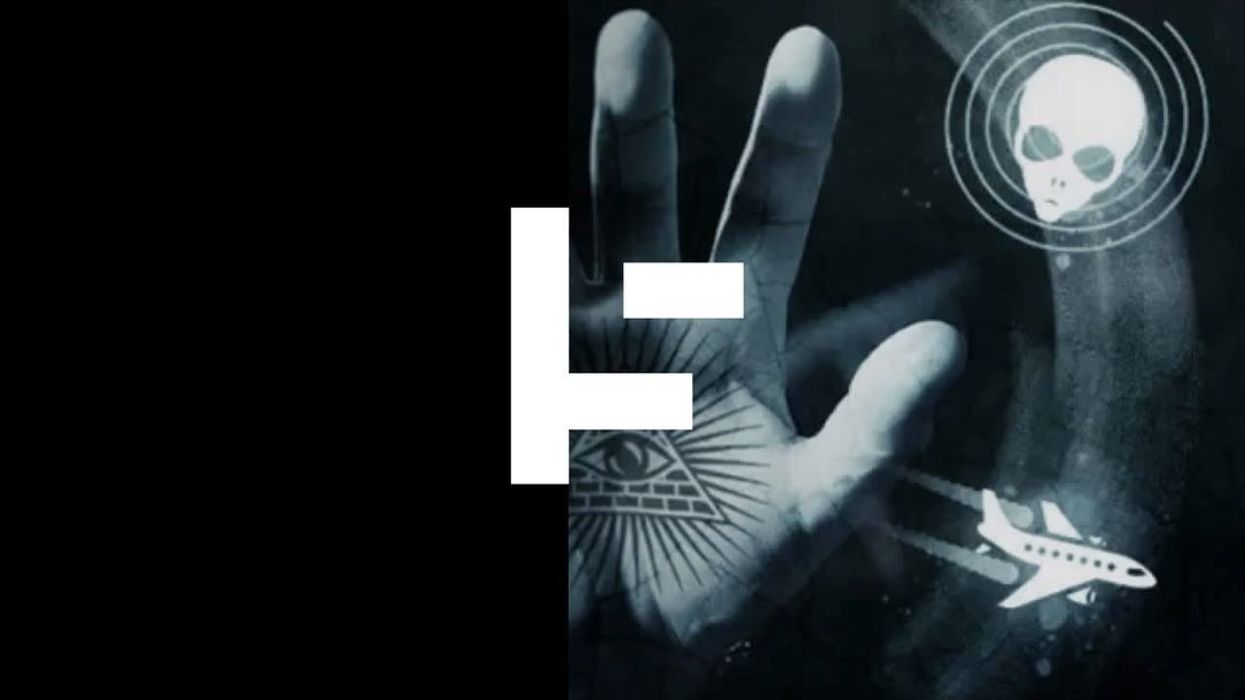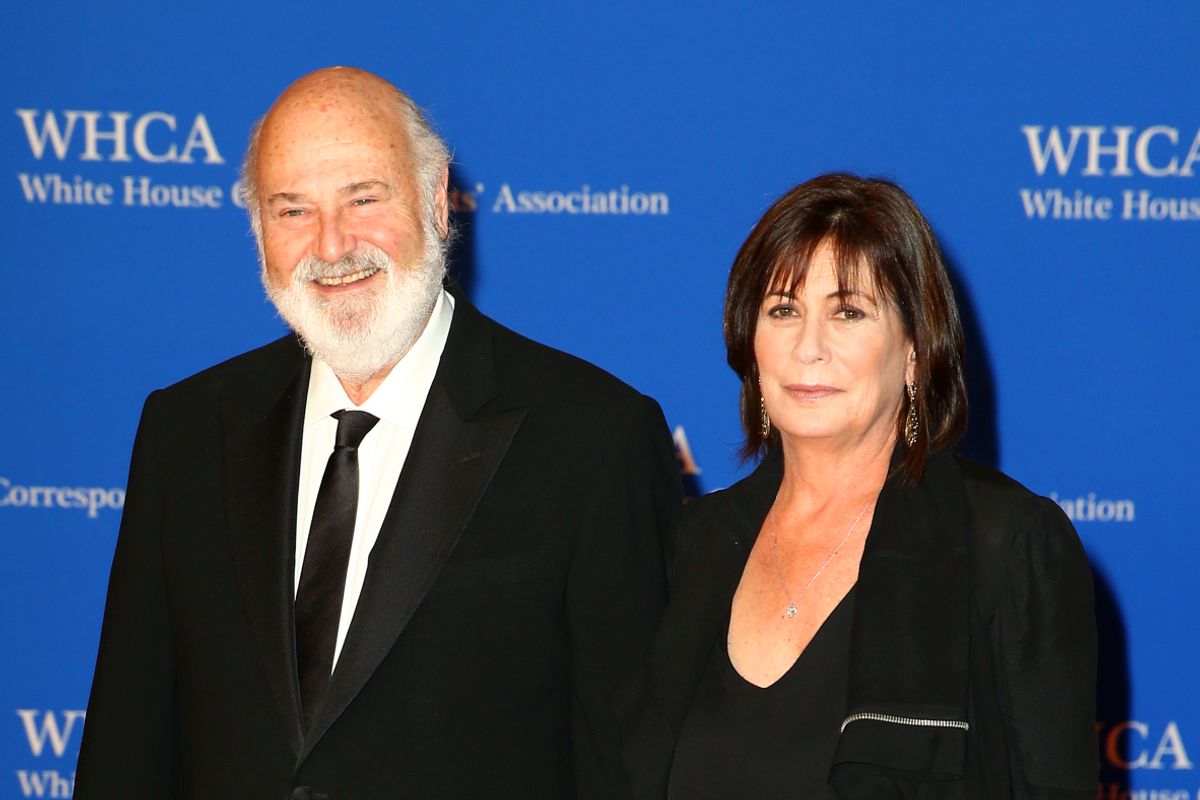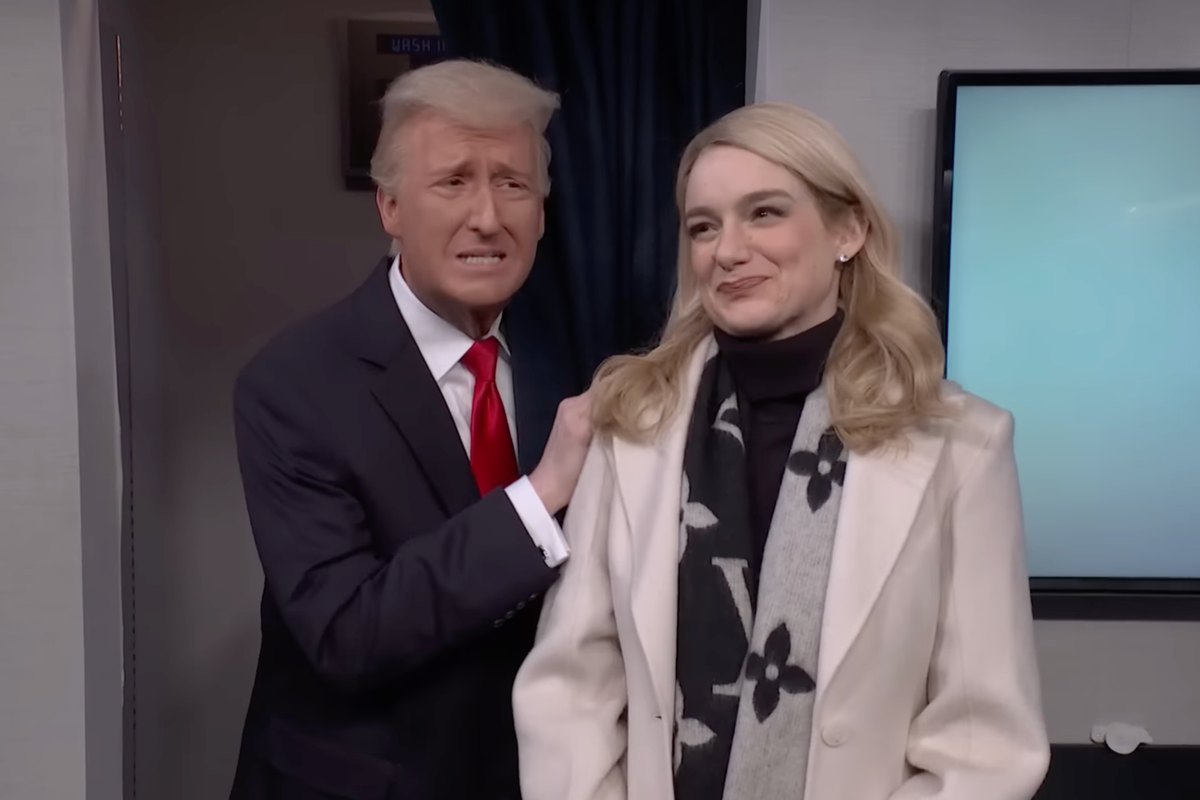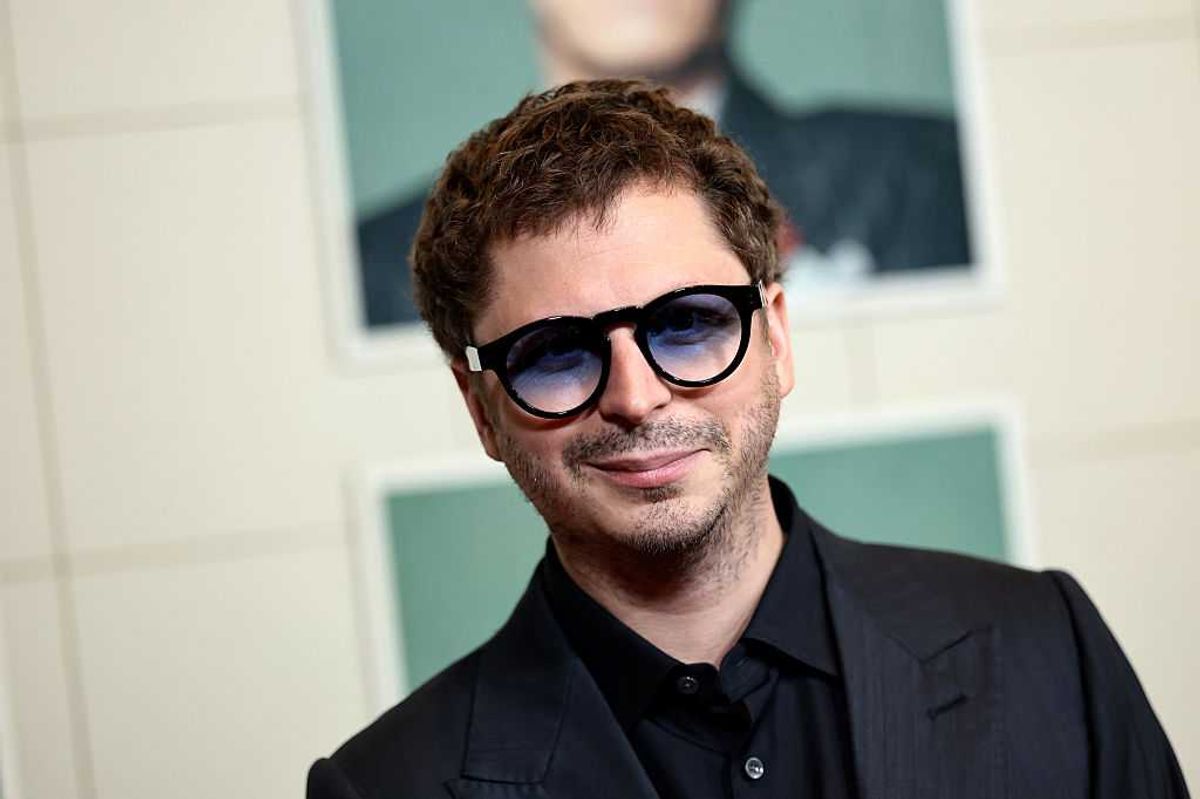Harriet Brewis
Feb 07, 2024
Top 10 Conspiracy Theories That are Actually True
Underknown - INSH / VideoElephant
If you hear the words “conspiracy theory,” you’ll most likely jump to thoughts of paedophile pizza rings, placard-wielding anti-vaxxers, or gun-touting Jan 6 rioters.
You don’t normally think of Roman emperors or 18th-century academics.
And yet, counter-mainstream narratives have existed throughout human history – they aren’t a modern trend fuelled by furious online forums.
Nevertheless, technology (or, more specifically, social media and artificial intelligence), has undoubtedly changed the landscape when it comes to the spreading and intensification of such ideas. And, over the past decade, we’ve seen their impact on society evolve in a deeply perplexing way.
With this in mind, indy100 spoke to two top experts to learn more about conspiracy theories and discuss what we can all do to protect real, objective truth from being consumed by smoke, mirrors, and bald-faced lies.
They’ve been around for millennia
Examples of conspiracy theories can be found way back in the annuls of history, extending as far back as the Roman era, and to the most notorious of emperors: Nero.
Most of us will be at least vaguely familiar with the great fire that destroyed most of Rome, and the image of its ruler playing his fiddle amid the flames, but many of us have no idea what really happened.
Karen Douglas, Professor of Social Psychology at the University of Kent, explained: “Emperor Nero was out of town when the fire started, and conspiracy theories started to spread claiming he and his associates deliberately started the fire in order to rebuild Rome according to his own vision.
“In other reports, Nero was supposedly singing while Rome was burning. Nero didn't like these conspiracy theories and came up with his own - blaming the Christian community for initiating the fire and spreading the rumours. This led to a lot of Christians being crucified or burned alive.”
In other words, centuries before internet posts and gossip sites, fake news managed to spread like wildfire.
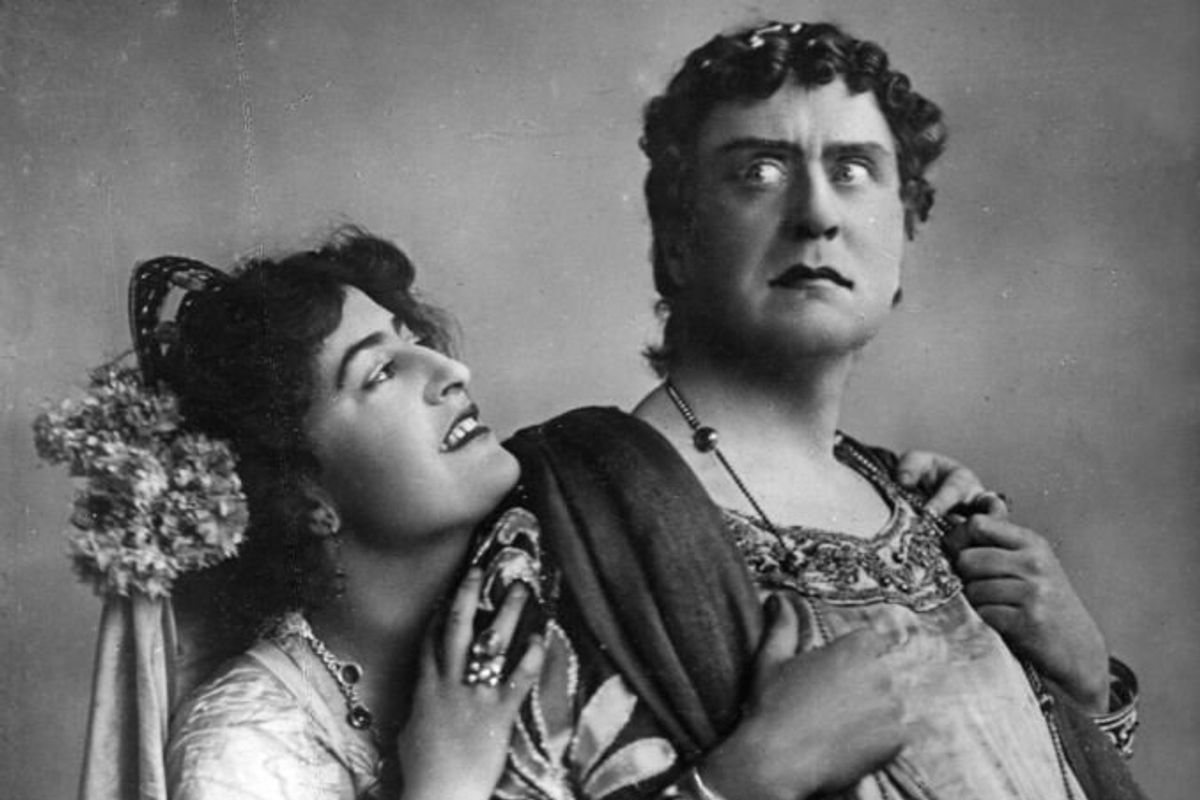
Social media hasn’t made the problem significantly worse
Many of us blame the likes of X/Twitter, 4chan and other chat platforms for the proliferation of conspiracy theories.
After all, the more people peddle their opinions, the more the truth becomes obfuscated by hearsay, speculation and downright fabrication, right?
Wrong.
In 2014, political scientist Joseph Uscinski and neurology professor Jack Parent analysed more than 100,000 letters sent to major US papers between 1890 and 2010.
Rather than see conspiracy theorising increase in recent times, as you might expect, Uscinski and Parent found that such behaviour was remarkably stable over that 120-year period.
Now, you might argue that things have changed a lot since 2010 – back then, “deepfake” wasn’t even a word, and President Trump wasn’t even a twinkle in the eye of global politics – but the conclusion remains valid.
“Conspiracy theories are no more popular today than they have been in the past,” Peter Knight, of the University of Manchester, told indy100.
“Of course, what has changed is that conspiracy theories are more visible, and that's not least because social media means that everyone, without even trying to, comes across conspiracy theories, all the time.
“But if you survey people in terms of belief in Kennedy assassination conspiracy theories, for example, there's no significant difference between now and previous eras.”

What about the spread of misinformation?
The widely-held assumption is that social media and the recommendations made by algorithms are fuelling, or even causing, a crisis of misinformation, disinformation and conspiracy theories. But Prof Knight thinks that view is “exaggerated”.
“Yes, clearly, the algorithms are pushing some people down rabbit holes,” he said.
“And this was certainly an issue before 2019, when social media companies were shamed into tweaking their algorithms when it became clear that the perpetrators of various mass shootings had been radicalised online.
“But, post-2019, things aren’t so clear. It’s less obvious that merely coming across this information – or having it thrust in our faces by an algorithm – is going to any of us into conspiracy-spouting zombies.”
What about online echo chambers?
They aren’t as powerful, or prolific, as you might expect.
“ISIS-style echo chambers, where there’s no outside involvement and people are radicalising themselves and cutting themselves off from the rest of the world, aren’t so common among people dabbling in conspiracy theories,” Prof Knight explained.
Sure, there are a few QAnon rabbit holes but, in most cases, people who are interested in conspiracy theories online aren’t sealed off from the rest of the public.
“When people are de-platformed from mainstream social media and they go to alternative spaces, you'd assume this would intensify their beliefs because they're now shouting at one another,” Prof Knight said.
“But what tends to happen is that their interest fizzles away. because unless you've got a liberal to provoke there's no joy in it anymore.
“So whilst echo chambers and filter bubbles do play a role, we need to remember that there’s a social dynamic at work. And part of this dynamic is the provocation of enemies.
“Once you take away those opposing voices, suddenly it's just not as much fun.”
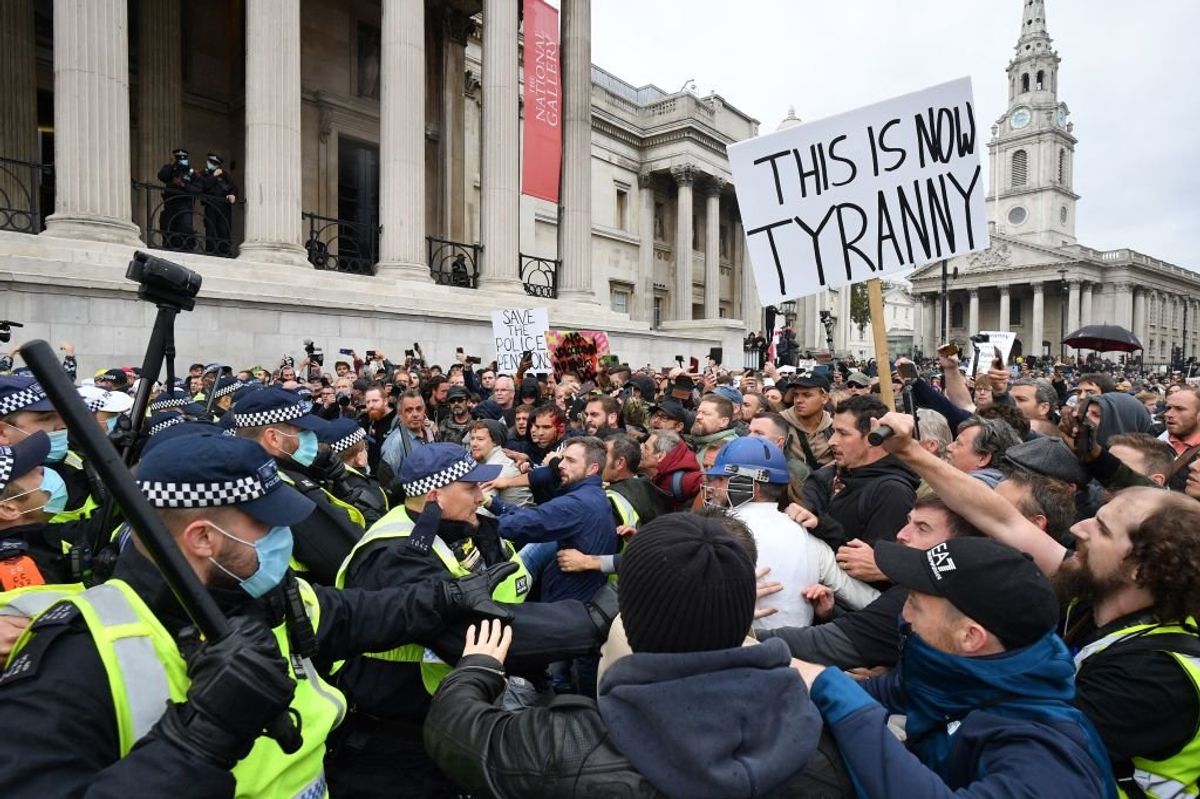
So what’s really fuelling conspiracy theories?
“The bigger picture for me is that people believe what they want to believe,” Prof Knight said.
“So the belief in conspiracy theories is driven, not by false information, but by a sense of identity and belonging and, in many cases, legitimate but misunderstood grievances.”
The academic noted that many people, psychologists included, ask how people can subscribe to ideas that are so obviously nonsensical.
“But that, for me, is fundamentally misunderstanding the problem,” he said.
“In reality, people find in conspiracy theories a post facto justification for things that they were already feeling and a sense of the identity that they had already inhabited.
“So it's not the conspiracy theory or the specific piece of misinformation that is causing people to change their mind. In many ways, they've already made up their minds.
“Rather, conspiracy theories give a compelling and emotionally convincing narrative to these innate feelings of grievance and resentment.”
Prof Douglas agreed, adding: “People seem to be attracted to conspiracy theories when one or more psychological needs are frustrated.
“The first of these is the need to know the truth and have clarity and certainty. The second is the need to feel safe and to have some control over things that are happening around us. And the third is the need to maintain our self-esteem and feel positive about the groups that we belong to.
“People might be attracted to conspiracy theories to try to satisfy these needs, which essentially means that anyone can fall into conspiracy theories if they have needs that are not being met at any particular time.”
She continued: “People are looking for ways to understand what is going on and to try to cope with difficult circumstances. A simple explanation is often not very appealing in such cases. People assume that a big event must also have a big or more sinister cause.”

What are we currently doing to stop the spread of conspiracy theories?
Plenty of work has been done in trying to identify misinformation, disinformation and conspiracy theories, first using human moderators and now, increasingly, AI. But even sophisticated tech still has significant pitfalls.
“You can train machine learning algorithms to automatically detect and remove specific pieces of misinformation,” Prof Knight said. “When you've got a specific set of keywords, computers can be trained to find them and either apply automatic corrections or remove them.
“The problem is that misinformation often takes more sophisticated forms – like conspiracy theories – where the issue is not just a single piece of misinformation, but a whole narrative explanation.”
He went on: “Computers find it quite hard to detect conspiracy theories because there are no clear, easy red flags to hone in on.
“Instead, you'll often find that a piece of misinformation that might be part of a wider conspiracy theory is in itself taken from a perfectly true and legitimate source – such as a mainstream news site – but it's reframed as part of a larger narrative.
“And so when you've got the AI trying to detect this stuff, they just see a legitimate source. They don't see the irony or reframing that turns this into a conspiracy-minded explanation.”
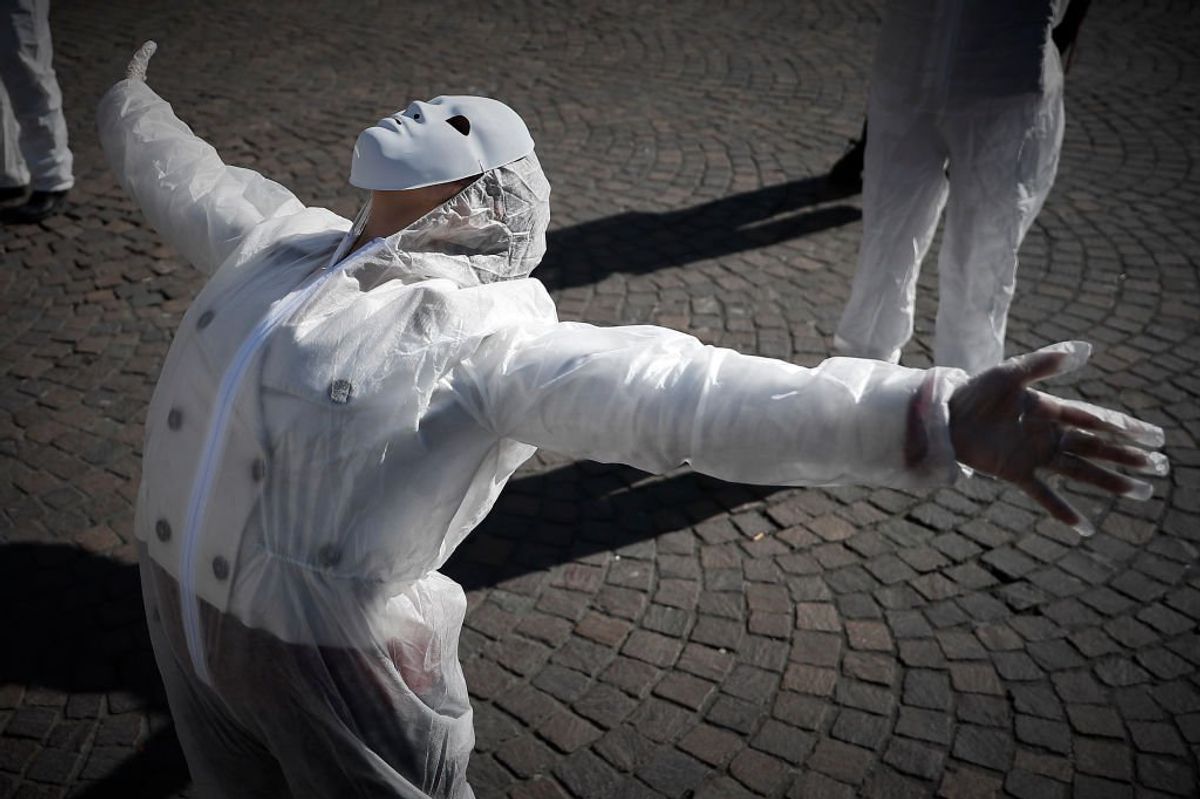
Does fact-checking work?
Correction, fact-checking and the rebuttal of false information must be done but, according to Prof Knight, it doesn’t really change people’s minds.
“The danger these days is that right-wing populists, in particular, think that fact-checking organisations – the ‘liberal elite’ mainstream media and so on – are now themselves part of the conspiracy,” he explained.
Moreover, conspiracy theorists rely on the pillars of media literacy – “Don’t trust what the media are telling you because there might be a hidden agenda; think about who’s funding this” – to justify their ideas.
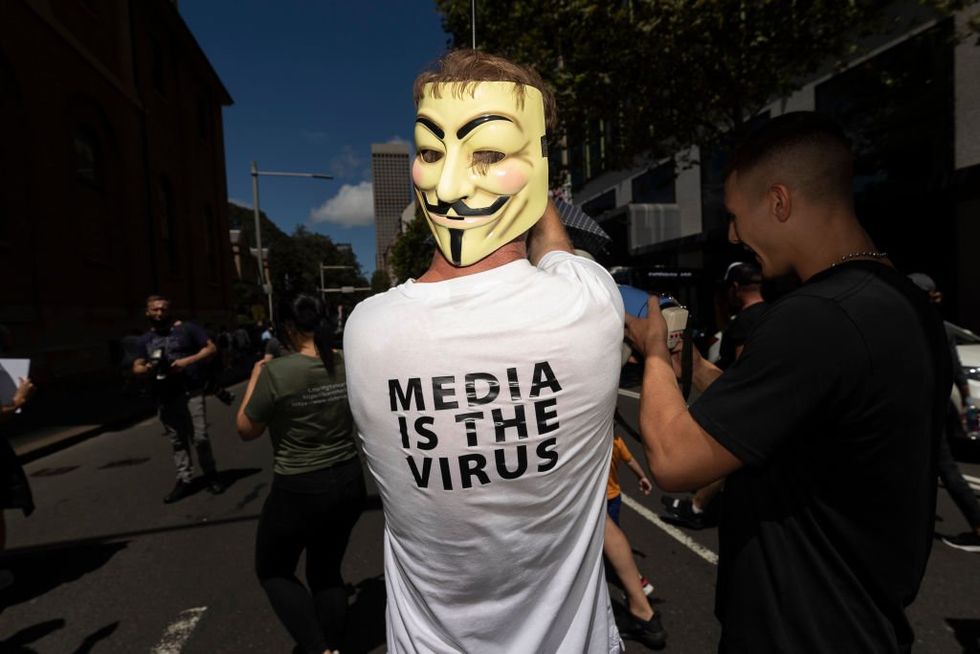
So what does work?
Social psychologists are working on techniques to deal with misinformation, referred to as “pre-bunking” or “inoculation”.
This, as Prof Douglas and Prof Knight explained, is grounded in the idea that you need to warn people about the misinformation they're likely to receive before they see it.
“If you do this in a controlled, advanced fashion, like a vaccine, people are better equipped than to resist what they're given,” Prof Knight explained.
“The problem with this is that the metaphor of inoculation is often taken as a literal fact rather than a metaphor, and the other problem is that the effects are short-lived.”
He continued: “So it seems like a promising idea but, once again, it’s not the silver bullet solution that people are after.”
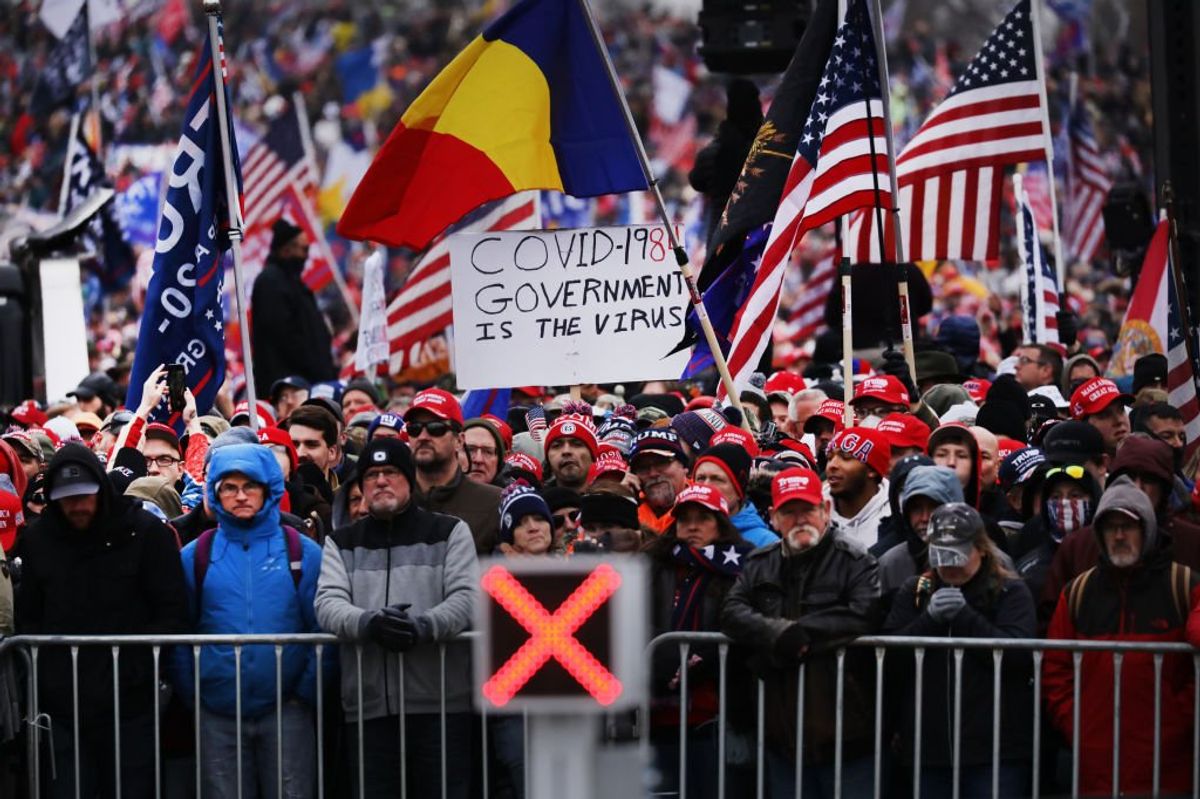
So what is the ultimate weapon in the fight against conspiracy theories?
Sadly, but inevitably for something that’s been around for millennia, there’s a solution – but it’s not a simple one.
“We can't hope that the problem's going to go away by putting out correct information,” Prof Knight admitted. “We can't hope that the problem's going go away simply by tweaking the algorithms.
“All of these things are necessary, but they're not going to be the simple solution.”
“Ultimately,” he said, “We need to understand some of the underlying grievances people have that are being expressed through conspiracy theories.”
Prof Knight explained that it’s not just an individual’s psychology that’s at fault here, we need to understand why institutions like pharmaceutical companies, the mainstream media and the government provoke so much suspicion in the first place.
Furthermore, if we want to instil a greater sense of trust in these establishments – and thus diminish the appeal of conspiracy theories – we’ll need to do the slow, painful work of making them more trustworthy.
“We also need to not endlessly ridicule and dismiss conspiracy theorists as somehow beyond the pale of rational discourse,” Prof Knight added.
After all, we all just want the world to make sense, and to be led by people we can trust.
How to join the indy100's free WhatsApp channel
Sign up for our free Indy100 weekly newsletter
Have your say in our news democracy. Click the upvote icon at the top of the page to help raise this article through the indy100 rankings.
Top 100
The Conversation (0)
